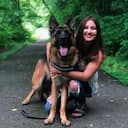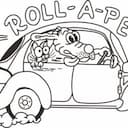Belgian Tervuren Transport Solutions


Seamless, secure shipping for your Belgian Tervuren. Connect with experts today.



2,500+ drivers
Actively competing for your business.90% of listings
Receive a quote in less than 10 min.100,000,000+
Miles driven by qualified transporters.14+ years experience
Shipping what matters most.How much does it cost to transport your dogs
Your dog is so much more than four legs and a tail — they’re members of your family and best friends for life. We’re proud to be the nation’s top-rated and leading service for dog transportation.
Our unique process matches you with a fleet of pre-screened shipping service providers with prior experience at transporting dogs, with strong emphasis on your pet's comfort and safety.
Successful Belgian Tervuren transports from our platform
| Shipment | Location | Distance | Cost |
|---|---|---|---|
| Maria R. shipped Bowdie | Doylestown, OH → Fort Myers, FL | $500.00 | |
| Leon shipped Tervy Acres | Munden, KS → Flower Mound, TX | $400.00 | |
| Suzanne H. shipped Pink Girl (New Puppy Without Name) | Paris, KY → Fenton, MI | $400.00 | |
| Makenna S. shipped Briar | Yorkville, IL → Yatesville, GA | $450.00 | |
| Shawna S. shipped Duncan | Bordentown, NJ → Guntersville, AL | $400.00 | |
| Jessica E. shipped Oona | Huntsville, AL → Middlebury, VT | $700.00 | |
| Jess shipped Gunner | Dallas, TX → Oceanside, CA | $625.00 | |
| Chris shipped Coco | Heber City, UT → Epsom, NH | $1,850.00 | |
| Leia G. shipped Heist | Guntersville, AL → Huntington, NY | $700.00 |
We are committed to building a safe, caring environment for people and animals on the road
Top Belgian Tervuren transporters

Dawg Gone Pet Transport

Door to Door Transport


Roll-A-Pet,llc
- We carefully background check all shipping service providers.
- We verify transporter addresses and contact information for additional protection.
- Photos of shipping service providers and their vehicles help confirm who and what to expect.
- Detailed customer reviews provide insight and transparency to your selection process.
- Find A Loving Dog Transporter
What determines the cost of Belgian Tervuren shipping
Here's what you need to know about safely transporting your Belgian Tervuren.
 Mode of transportation
Mode of transportation
Ground travel
Cost $$$
Time ⏱⏱⏱
Air travel
Cost $$$
Time ⏱⏱⏱
 Travel distance
Travel distance
The further you need to transport your pet, the more it'll cost. If you're using ground transportation, you'll have to factor in fuel costs, lodging, meals on the road and wear-and-tear on your vehicle. These costs are applicable whether you drive the pet yourself or you hire a shipping service provider through CitizenShipper. Airlines charge more for longer plane rides as well. This is due to the cost of fuel and the need compensate pilots and flight attendants.
 Pet size
Pet size
Smaller pets are easier – and less expensive – to transport. If you’re flying your Belgian Tervuren, they’ll need to travel in the cargo hold if they’re over 20 pounds. You’ll also need to buy a USDA-approved crate, which can cost around $200. With ground transport, it’s easier for shipping service providers to accommodate small pets.
 Health clearance and travel equipment
Health clearance and travel equipment
The first step to transporting your Belgian Tervuren is ensuring they’re healthy enough to travel. Most species require a vet-issued health certificate to cross state lines. This will cost $50 to $300. You’ll likely need to purchase some equipment too – such as a crate and travel supplies.
How to prepare your Belgian Tervuren for transport
At CitizenShipper, we pride ourselves on making pet transportation a breeze. However, there are things you can do ahead of time to make your best friend's trip safer and more comfortable.

Talk to your veterinarian
Your pet's safety is number one – that's why checking in with your vet before finalizing any travel plans is essential.
Can't make it to the vet's office in time? Conveniently video chat with a qualified veterinarian at Vetster – one of our amazing partners.
Here are the questions you'll want to ask your vet:
- Is my pet healthy enough for transport?
- Is my pet up to date on their vaccines?
- Is my pet's microchip still in place and scannable?
Health and Vaccination Records
Accurate and up-to-date health and vaccination records are essential for the safe transport of your Belgian Tervuren. This documentation not only conforms with state regulations but also serves as an important reference for the transporter in case of an emergency.Identification and Tracking
Ensuring that your Belgian Tervuren can be identified throughout their journey is of utmost importance. A secure collar with tags, a microchip registration, and considering the option of a GPS tracker can provide peace of mind and swift recovery if they were to become separated from their transporter.



Comfort Items and Familiar Scents
To keep stress levels at a minimum, pack a favorite blanket or toy that smells like home. These items can be invaluable for providing psychological comfort to your Belgian Tervuren during the transition.Essential pet transport travel supplies include:
- Food, bowls and fresh water
- Collars and leashes
- Waste bags
- Medication
- First-aid supplies
- Any travel documents
- A secure, USDA-approved travel crate
Traveling to a new place is exciting but stressful for your pet. Pack their favorite toys, a bed or a comfy blanket to help them enjoy their journey. Familiar items remind them of home and will soothe their anxiety.
Tailored Travel Tips for Belgian Tervuren
Managing Anxiety and Stress
Belgian Tervurens, much like any pet, can experience stress when traveling. Alongside their favorite items, tactics like playing soothing music, using anxiety vests, or practicing calming techniques can help mitigate any stress. Consultation with a veterinarian may also provide additional strategies unique to your dog's personality.Exercise and Bathroom Breaks
To cater to a Belgian Tervuren's high energy levels, establish a travel plan that includes regular stops for exercise and potty breaks. This will not only help with managing their excitement but also encourage calm behavior during the voyage.Temperature Control and Hydration
Pay careful attention to your Tervuren's comfort by maintaining a stable temperature in the vehicle, avoiding extremes that can affect this double-coated breed. Ample access to fresh water will keep your furry friend well-hydrated throughout the journey.
Post Transportation Care for your Belgian Tervuren
Adjustment to New Surroundings
Upon arrival, allow your Belgian Tervuren to explore their new environment at their own pace. This breed is adaptable but appreciates the reassurance as they get familiar with new smells and sights.Monitoring Health Post-Travel
After the journey, keep an eye on your Belgian Tervuren's behavior and appetite, as changes can indicate stress or health issues. Consult your vet if your dog's demeanor is notably altered post-travel.Continuing Care and Routine
Re-establishing a familiar routine can greatly aid in your dog’s acclimatization to their new home. Continue with regular feeding, walking, and playtime schedules to help your Belgian Tervuren settle in smoothly and maintain its overall well-being.Ready to ship your Belgian Tervuren
No hidden costs or upcharges. Just a simple and stress-free experience. Get started in two minutes or less!
Get Free EstimatesPopular dog breeds that we ship
- Afghan Hound
- Airedale Terrier
- Akita
- Alaska Klee Kai
- Alaskan Malamute
- American Bulldog
- American Bully
- American Eskimo
- American Staffordshire Terrier
- Anatolian Shepherd
- Australian Cattle
- Australian Kelpie
- Australian Shepherd
- Australian Stumpy Tail Cattle
- Australian Terrier
- Basenji
- Basset Hound
- Beagle
- Beauceron
- Bedlington Terrier
- Belgian Malinois
- Belgian Sheepdog
- Berger Picard
- Bernese Mountain
- Bichon Frise
- Biewer Terrier
- Black And Tan Coonhound
- Black Russian Terrier
- Bloodhound
- Bluetick Coonhound
- Boerboel
- Border Collie
- Border Terrier
- Borzoi
- Boston Terrier
- Bouvier Des Flandres
- Boxer
- Boykin Spaniel
- Bracco Italiano
- Brittany
- Brussels Griffon
- Bull Terrier
- Bulldog
- Bullmastiff
- Cairn Terrier
- Cane Corso
- Cardigan Welsh Corgi
- Carolina
- Catahoula Leopard
- Caucasian Shepherd
- Cavachon
- Cavalier King Charles Spaniel
- Central Asian Shepherd
- Chesapeake Bay Retriever
- Chihuahua
- Chinese Crested
- Chinese Shar-Pei
- Chorkie
- Chow Chow
- Cockapoo
- Cocker Spaniel
- Collie
- Coton De Tulear
- Dachshund
- Dalmatian
- Doberman Pinscher
- Dogo Argentino
- Dogue De Bordeaux
- Dutch Shepherd
- English Cocker Spaniel
- English Setter
- English Springer Spaniel
- French Bulldog
- German Shepherd
- German Shorthaired Pointer
- German Wirehaired Pointer
- Giant Schnauzer
- Golden Retriever
- Goldendoodle
- Gordon Setter
- Great Dane
- Great Pyrenees
- Greater Swiss Mountain
- Greyhound
- Havanese
- Irish Setter
- Irish Terrier
- Irish Wolfhound
- Italian Greyhound
- Japanese Chin
- Jindo
- Keeshond
- Kerry Blue Terrier
- Labradoodle
- Labrador Retriever
- Lagotto Romagnolo
- Leonberger
- Lhasa Apso
- Maltese
- Maltipoo
- Mastiff
- Miniature American Shepherd
- Miniature Bull Terrier
- Miniature Pinscher
- Miniature Poodle
- Miniature Schnauzer
- Mixed Breed
- Mountain Cur
- Neapolitan Mastiff
- Newfoundland
- Norwegian Elkhound
- Old English Sheepdog
- Papillon
- Parson Russell Terrier
- Pekingese
- Pembroke Welsh Corgi
- Perro De Presa Canario
- Pitt Bull Terrier
- Plott Hound
- Pointer
- Pomapoo
- Pomeranian
- Pomsky
- Poodle
- Portuguese Water
- Pudelpointer
- Pug
- Puggle
- Rat Terrier
- Redbone Coonhound
- Rhodesian Ridgeback
- Rottweiler
- Russell Terrier
- Saint Bernard
- Saluki
- Samoyed
- Schipperke
- Schnoodle
- Scottish Terrier
- Shetland Sheepdog
- Shiba Inu
- Shih Tzu
- Siberian Husky
- Silky Terrier
- Soft Coated Wheaten Terrier
- Spanish Mastiff
- Staffordshire Bull Terrier
- Standard Poodle
- Standard Schnauzer
- Tibetan Terrier
- Toy Fox Terrier
- Toy Poodle
- Treeing Walker Coonhound
- Vizsla
- Weimaraner
- West Highland White Terrier
- Whippet
- Wire Fox Terrier
- Wirehaired Pointing Griffon
- Xoloitzcuintli
- Yorkipoo
- Yorkshire Terrier

